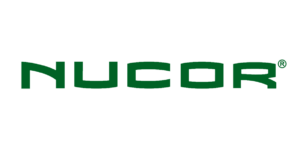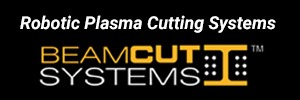Advanced CNC: It’s Not a Luxury, It’s a Necessity
Beyond basic axis motion, table motion, spindle control and tool change, the method by which complex parts are fed to the machine has changed and cost containment and performance validation pressures are increasing, particularly on shops that make parts for automotive, aerospace, appliance, military or medical markets.
Posted: April 22, 2014
Until perhaps ten years ago, the short list of “musts” for your machine control would have comprised the basics of axis motion, table motion, spindle control and tool change. Today, as parts have become more complex and cost pressures increase, the method by which those part designs are fed to the machine has changed and more is required of your shop in the areas of cost containment and performance validation. This is especially true if you make parts for automotive, aerospace, appliance, military or medical markets.
For control suppliers, it’s become a matter of keeping pace with both motion control and process control in order to help our machine builder customers and, ultimately, the end-user shops of all sizes better accommodate their growing challenges. How we accomplish these tasks will set the stage for our future.
Once upon a time, the job shop and contract manufacturer markets could prosper with a core of good customers and a steady flow of work. Then the trend went to more outsourcing and cost justification. Then the demand for value-added services emerged and, today, those requirements are further complicated by new competition, a decline in the available labor pool and further cost reductions.
Thus the challenge for the shops that seek to survive and prosper into the next generation is to raise the bar on their own performance, through several strategies. It’s here that the controls supplier can be an invaluable asset to a shop’s operation. When the machine can do more, the shop can do more, simply stated.
Improvements in automation, coupled with a faster time-to-first-part, the ability to run more small batch jobs and squeeze more profit from the larger production runs, will result in more opportunities for a shop, regardless of size. It’s possible to have a three-man shop, where two of the three have G-code experience and can maximize the production of their five-axis machines, as well as a 40-man shop that becomes and remains a Tier One vendor to automotive,because we have such companies as customers of our customers.
These forward looking shops took the steps necessary to automate or to discover more ways to maximize the productivity of very high-end machine tools, precisely because they learned to utilize their machine controls in a new and better way.
An advanced CNC should have all or most of the following to give your shop its maximum output potential. This is no magic pill solution, because you must still have the right team in your shop to handle sales, the programming, the machine setup, the production and the quality monitoring/documentation, but it’s a list of control characteristics that will make your machines perform to their maximum potential.
NURBS (non-rational uniform b-splines) is that technical term that refers to the control’s ability to machine contours in a way that’s far superior to the old point-to-point control. You’ll be able to make more complex parts and you’ll be able to put a better finish on the 2D surfaces.
A part verification program takes the CAD drawing and more quickly makes the first part, plus it also reduces the cycle time and scrap material. Essentially, it sees the cutting functions through the post-processing stage immediately, to optimize the tool path faster and more effectively. More data handling functions will allow you to access third-party web sites for material specifications that the machine will then factor into the production cycles in real-time.
Increased ability to accommodate wireless and advanced communications systems is gathering steam, as this is fast becoming the most efficient and even economical means of data transfer. In the same mode, the use of vision systems on a machine for in-cycle error detection and quality checks will require the CNC to interpret such data. Adaptive control that allows the machine to make instantaneous adjustments to the program in real time will result in greater consistency in the parts produced.
A more comprehensive library of motion and process control characteristics enables the advanced CNC to accomplish EDM, waterjet, laser and ultrasonic machining, thereby opening new possibilities for shops of all types to expand their service offerings with a considerably shorter learning curve. Increased axes of movement simply put more muscle into the machine, making robotic handling, transfer mechanisms, remote tool/workpiece manipulators or storage carousels, rotary tables and other devices a realistic possibility for any sized shop.
And, ultimately, the advancements in the CNC technology itself are actually lowering the cost for machine builders to implement higher levels of control into their machines and still remain cost-competitive. Looking for those types of machine tools will enhance your shop’s success on many levels.
Lastly, if these features are not on your present machine, consider the possibility of a retrofit upgrade. In doing so, be sure the motor and drive packages complement the CNC onboard. After all, the greatest jockey won’t win the race, if the “horsepower” is insufficient.












